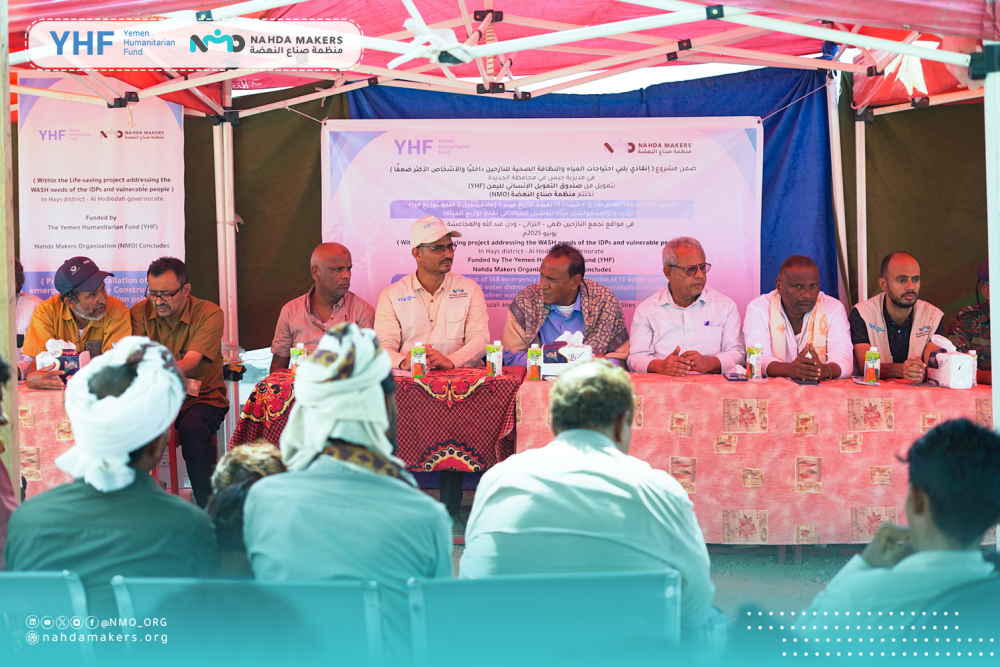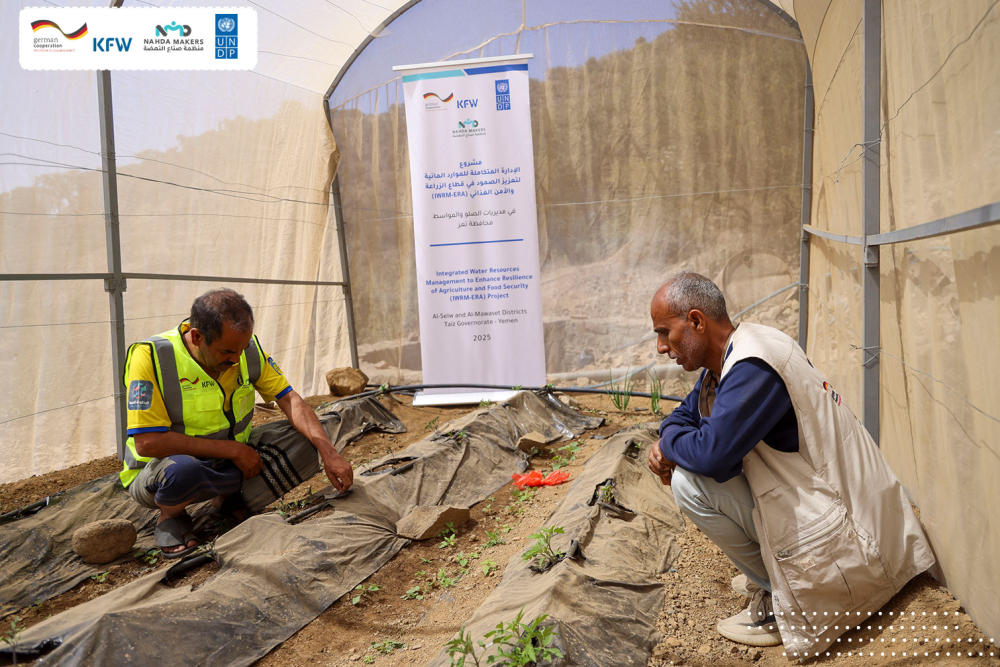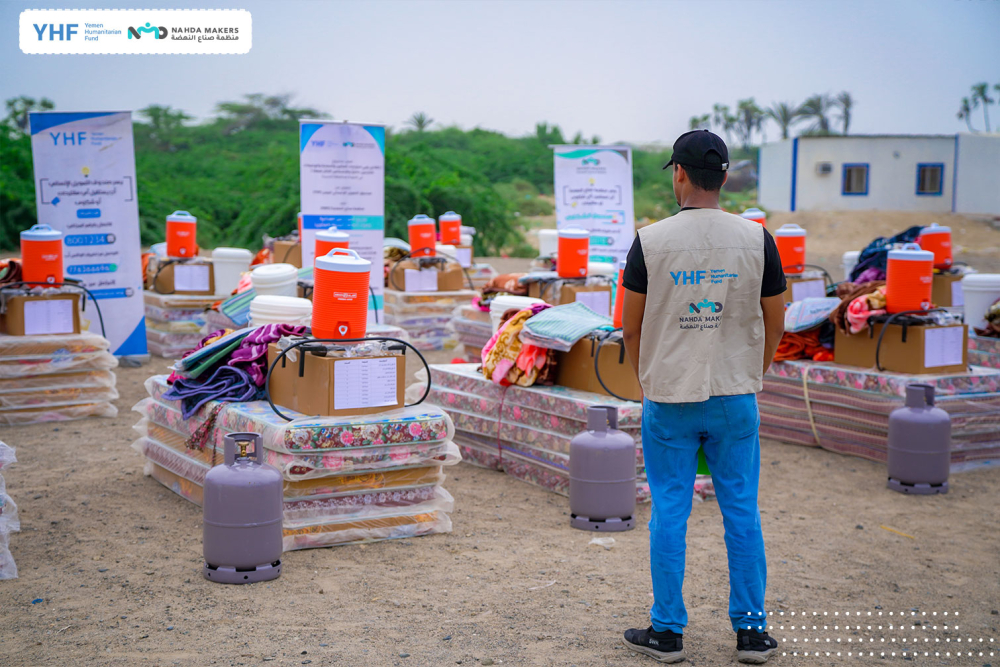اختتمت منظمة صناع النهضة #NMO تنفيذ مشروع منقذ للحياة يهدف إلى تلبية الاحتياجات العاجلة في مجال المياه والإصحاح البيئي (WASH) للنازحين داخليًا والأسر الأكثر ضعفًا في مديرية حيس بمحافظة الحديدة، بدعم من صندوق التمويل الإنساني في اليمن #YHF.
استهدف المشروع أربعة من مواقع تجمعات النازحين في المديرية وهي: ظمي، النزالي، وذن عبدالله، والمجاعشة، حيث تم تنفيذ مجموعة من التدخلات الحيوية التي أسهمت في تحسين ظروف الحياة والحد من المخاطر الصحي أبرزها :
- إنشاء 148 حمامًا طارئًا في مواقع تجمعات النازحين.
- إنشاء وتأهيـــل 16 نقطة توزيع مياه، وربطها بشبكات بطول 1800 متر.
- توفير 1,260,000 لتر من المياه الصالحة للشرب لمدة 90 يومًا.
- تنفيذ 3 حملات نظافة شملت رفع 720 مترًا مكعبًا من المخلفات.
- تنفيذ حملات توعية صحية استمرت لثلاثة أشهر.
- توزيع 348 حقيبة صحية للأسر المستفيدة.
شهد الحفل الختامي للمشروع حضور عدد من المسؤولين المحليين، منهم:
- مدير عام مديرية حيس ورئيس المجلس المحلي: الأستاذ/ مطهر سعيد عبد الجبار القاضي
- مدير عام الوحدة التنفيذية في محافظة الحديدة: الأستاذ/ جمال محمود عبد الرحمن المشرعي
- مدير عام هيئة مشاريع مياه الريف في محافظة الحديدة: الأستاذ/ حميد أحمد عمر الخزان
- مدير عام مكتب صندوق النظافة وتحسين المدينة في محافظة الحديدة: الأستاذ/ عياش محمد عياش بهيدر
- الأمين العام للمجلس المحلي في مديرية حيس: الأستاذ/ علي بن علي سعيد زهير
- مدير عام مكتب صندوق النظافة وتحسين المدينة في مديرية حيس: الأستاذ/ عبد الله أحمد سالم هديب
- مسؤول الوحدة التنفيذية في مديرية حيس: الأستاذ/ إبراهيم ناصر عنيني مشهور
- مسؤول شؤون المنظمات في مديرية حيس: الأستاذ عبد القدوس حمد علي حسين حذاري
يُعد هذا المشروع الذي استفاد منه 1916 فردا، نموذجًا لتدخلات فعالة تستجيب للاحتياجات الملحة وتُحدث أثرًا ملموسًا في تحسين جودة حياة النازحين، بما يعزز من صمود المجتمع المحلي ويساهم في بناء بيئة أكثر صحة واستقرارًا.





